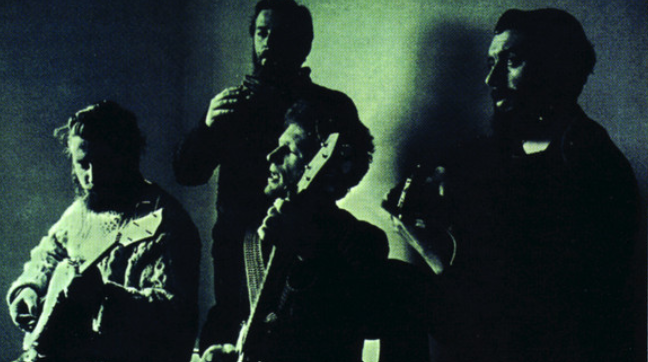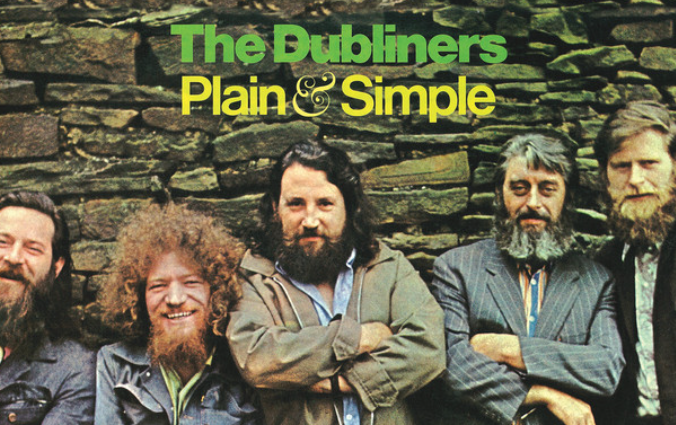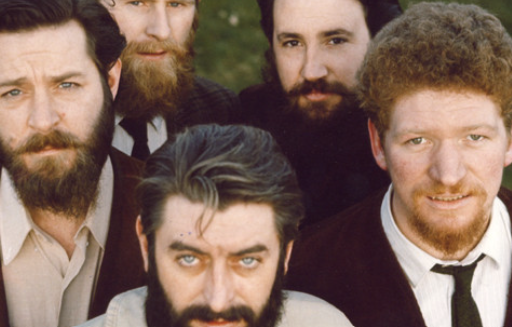Music Countdown to St. Paddy’s Day (Week 1)
All Images Courtesy of Dubliners Spotify Page
Bryce Russell | Art & Entertainment Editor
With about a month until the Irish holiday, I wanted to take the chance to write about some of my favorite Irish artists in the coming weeks. From traditional folk to alternative rock to rap, Ireland has a lot of great music to choose from, and with the University of Dayton’s historic love for St. Patrick’s Day, I thought it would be a good time to share this music while waiting for the big day.
To kick off the countdown, I figured I’d start with arguably the most classic of all Irish bands: The Dubliners.
Formed in 1962, the Dubliners came out of a group of traditional Irish music musicians that would regularly play in Dublin’s O’Donoghue’s Pub near the historic St. Stephen’s Green. Founding members Ronnie Drew, Luke Kelly, Ciarán Bourke, and Barney McKenna gained traction around the city and the rest of Ireland. After an appearance on the BBC program Hootenanny in 1963, the band was quickly signed to a record contract with Transatlantic Records.

The Dubliners’ music is considered highly influential in the popularization of Irish music across the rest of Europe, as well as the United States. Their first singles, “The Rocky Road to Dublin” and “The Wild Rover” are often considered the definitive versions of such songs, and have had a long life being played across the world during St. Patrick’s Day celebrations and Irish pubs.
As with many traditional Irish music bands, the Dubliners’ catalog is largely versions of traditional folk songs, though a few of their most famous songs are originals to the band that have entered into the folk music tradition, becoming covered by countless acts since their original release.
The most famous members of the group, Ronnie Drew and Luke Kelly, were arguably the primary reason for their success. Luke Kelly, the banjo player and ballad singer would provide strong vocals for songs like “Raglan Road” and “Scorn Not His Simplicity,” whereas guitar player Ronnie Drew’s gravely voice was used on songs such as “Molly Malone” and “Seven Drunken Nights.”

Sadly, Luke Kelly passed away in 1984 after being diagnosed with a brain tumor, and Ronnie Drew passed away in 2008. Throughout the band’s long run, there were many different line up changes, with at least one member of the original group present throughout. The band officially came to an end in 2012, following a series of 50th anniversary reunion shows at Dublin’s historic music venue Vicar Street.
The Dubliners contributions to Irish music have been, arguably, greater than that of any other band, challenged only by the Chieftains (who will be covered in the coming weeks). Influencing bands like the Pogues, the Dropkick Murphys, and Flogging Molly, as well as garnering famous fans such as Bob Dylan and members of Pink Floyd, the Dubliners left their mark on not just Irish music, but music as a whole.
Song Recommendations:
Sung by Luke Kelly, the Dubliners’ version of “The Wild Rover” was released in 1964 on their self-titled live album. The recording captures the sing-along feel of an Irish traditional session, and it is a must have on any St. Patrick’s Day playlist.
Also released on their debut album, “The Rocky Road to Dublin” dates back to the 19th century and tells the story of a man’s travels around Ireland before eventually landing in Liverpool where he is ridiculed for his nationality. Not before long, he loses his temper and fights the men before leaving to return home to Ireland.
This song is not only my favorite Dubliners song, but also one of my favorite songs ever. The lyrics to “Raglan Road” were written by Irish poet Patrick Kavanagh. The poem, which was originally released in 1946, was put to music by the Dubliners after the poet met Luke Kelly in a Dublin pub. The song is primarily focused on Luke Kelly’s beautiful delivery of the lyrics, telling the story of the narrator’s short love affair with a dark haired woman he met on Raglan Road.
A variation of an old, humorous folk song dating back to the 1700s, “Seven Drunken Nights” reached number 7 on the UK charts, and number 1 in Ireland, before it was banned from the Irish national broadcasting station in 1967. Sung by Ronnie Drew, it tells the story of a man who returns home drunk every night to find evidence that his wife has been with another man, but she is able to convince him otherwise due to his drunken state, until he finally catches the man on the final night.
Another one of the Dubliners fantastic sing along songs, this song is a must have on any St. Patrick’s Day playlist. The song tells the story of a sailor who wishes to return home after a series of shenanigans along his travels.
This song dates back to the late 1800s, and tells the story of a fish seller named Molly Malone who sells cockles and mussels through the streets of Dublin. After she passes away from an illness, her ghost continues to travel the streets of Dublin to sell her goods. The song has become the unofficial anthem of Dublin, with June 13 being officially named Molly Malone Day in 1988, along with the construction of a statue of the titular character, which has become a landmark in the city.
Written in 1979 by Pete St. John, “The Fields of Athenry” tells the story of a fictional man in Athenry in County Galway who is sent to the penal colony of Australia after stealing food from the British in order to feed his starving family. The song has become a staple of Irish sporting events, beginning with the County Galway hurling team, before being adopted by the Republic of Ireland football team during the 1990 World Cup, and the Celtic Football Club in Glasgow, Scotland, after that. The Dubliners version is a good one to listen to learn the lyrics of this classic song, so that you can sing along the next time you hear it played.
Another one of my favorites, the Dubliners version of “The Auld Triangle” features unaccompanied singing by Luke Kelly and is one of the best examples of his powerful voice. The song tells the story of a man who is in prison in Dublin, who laments his lost time in prison and wishes to return home.

